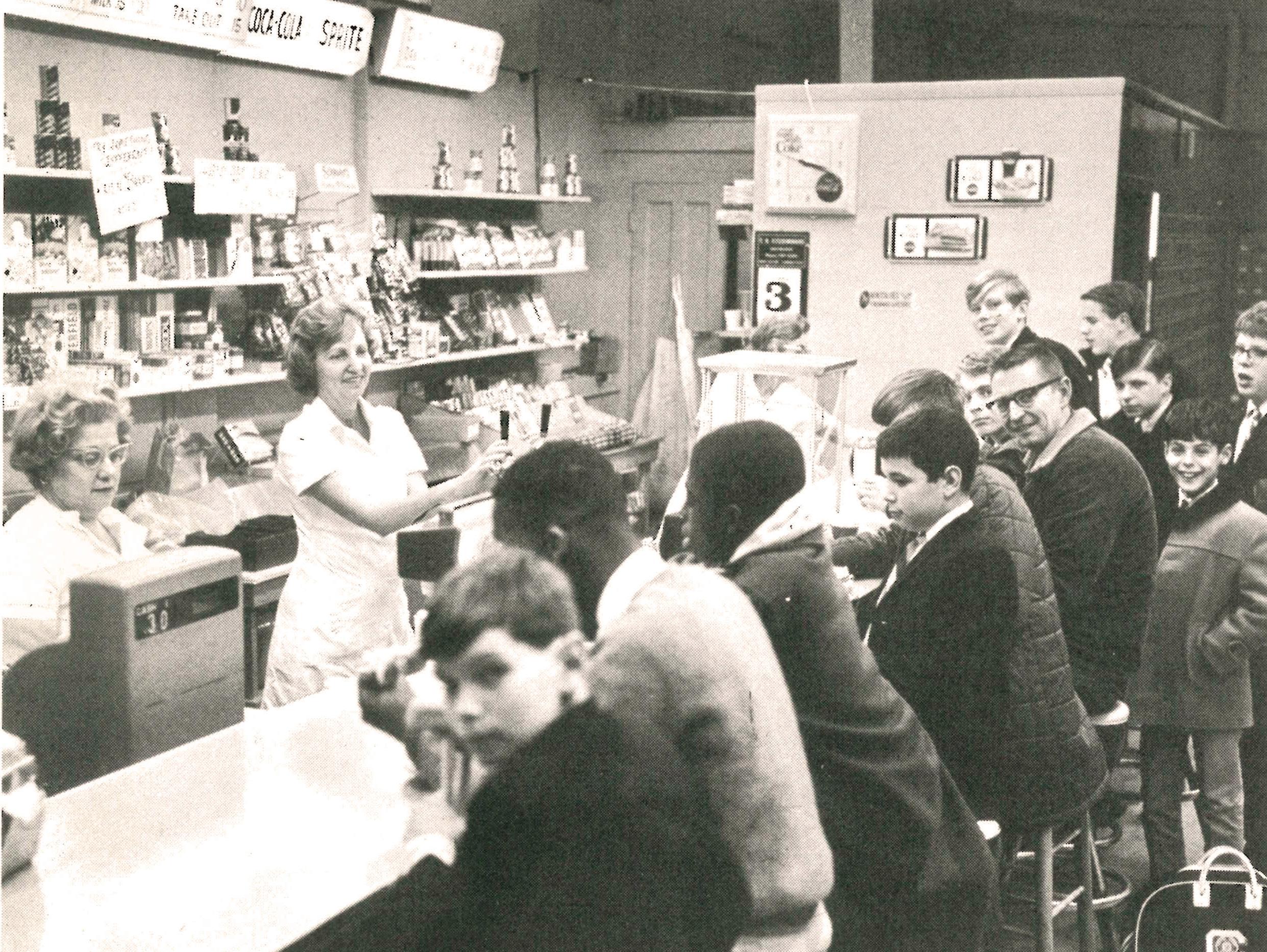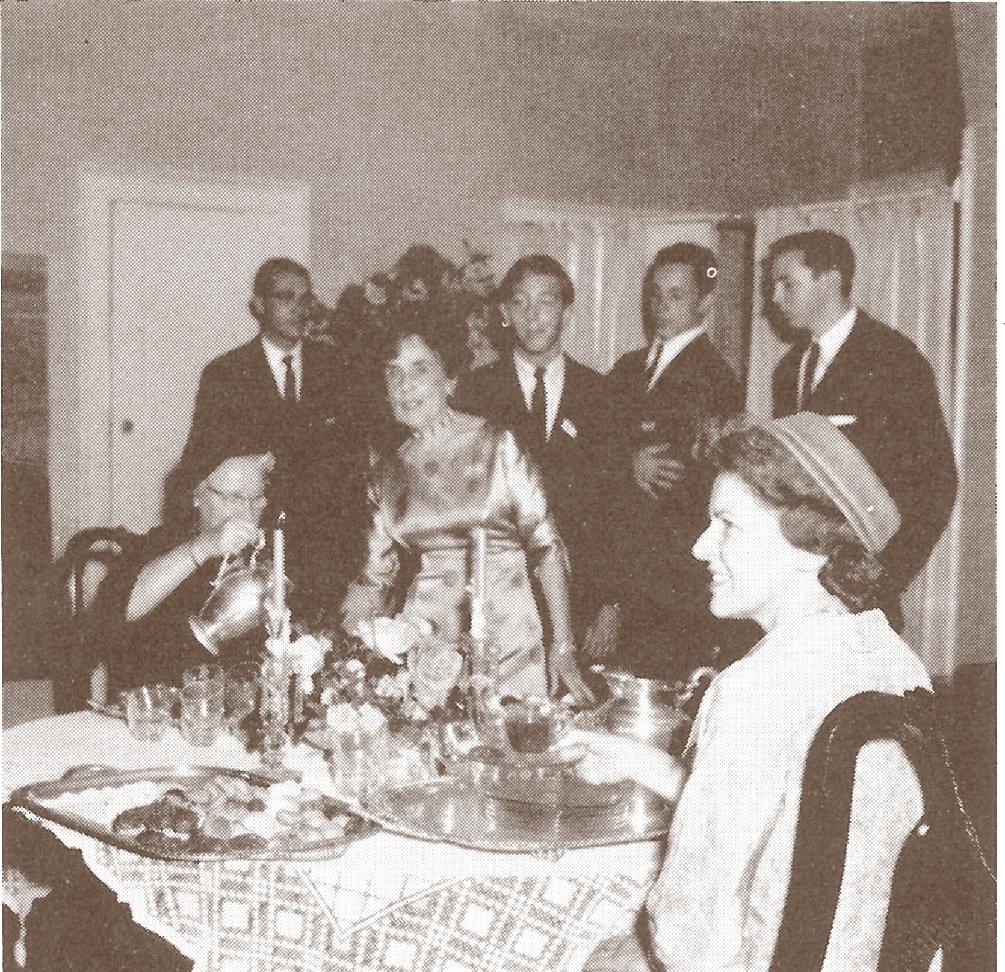
3 minute read
TEA & SNACKS
TEA AT THE TABLE
It wasn’t an etiquette class, but it was close. The semi-formal Sunday Teas held at the Sheriff House were a ritual of student life for many an alumnus. The mandatory weekend event, however, was attended more because it was a requirement than a chance to sip tea.
“On Sunday we had to go to chapel, then lunch, and then tea,” said Buff Crossley ’67. Held in the late 50s and the early 60s, the teas took place in the parlor room of Headmaster Arthur Sheriff’s house on the Green. “There was a little of the lesson of upper crust etiquette,” Crossley added. “It was very Victorian,” noted Don Scott, past student ’59-’62. Mrs. Charlotte Sheriff served the tea, he said. “She would smile up at you and you would say, ‘Thank you very much, Mrs. Sheriff.’”
Alumnus and Senior Master Emeritus Bevan Dupre ’69 said the practice of having tea on Sunday came from an earlier generation. “It was a carry over from our grandparents.” Still, “it wasn’t the kind of event where you drank from a cup with your pinky sticking out,” Crossley added.

TEA WITH MRS. SHERIFF
Academy tradition did require a specific type of clothing. “You had to get all nice and dressed up in jackets and ties,” said Scott. He added that the real reason for the event was to make sure the students were still on campus. The boys had to sign in as they entered the room and then they would be served. “We didn’t hang around very long,” said Bill Eddy ’61.
SNACKS ON THE RUN
Tucked into the southeast corner of the old gym [now the Gideon Welles Dining Commons] was a favorite spot for a quick bite. The Jigger Shop was an old fashioned soda fountain that served hot dogs, buttered rolls, cake slices, candy, and chips. The shop was next to the students’ mailboxes so the location made for a lot of foot traffic. It closed when the gym was converted into the Gideon Welles Dining Commons in 1967.
“I would get sodas there,” said Dupre. He was given an allowance of two dollars a week from his parents, as were many other students at the recommendation of the administration. The Jigger Shop was affordable, if not gourmet. “I ate a lot of onion rolls,” said Eddy. “They were toasted and covered in butter.” The warm roll would set a student back 25 cents. Rick LaCrosse ’68 was a day student, known in those times as a “dayhop.” He remembers the hot dogs were boiled and kept warm in the boiler during the day.
The favorite choice for English Teacher Rosanne Balogh Ferraro ’74 was milkshakes. She visited the Jigger Shop in the late 60s and remembers the 50s-style counter and stools. A picture from the 1966 “Rolling Stone” yearbook shows a bright red machine against a wall with the wording “Ice Cold Coca Cola.” Back-lighted signs advertised Sprite and the menu board above the counter informed students that milk costs 15 cents.
The manager of the shop was Edna McCoy who was featured in a 1965 Academy Review photo as providing “Service with a Smile.” McCoy had assistance from Carmel Paolillo who operated an old fashioned cash register. Located on a shelf below the counter, the tall metal register contained a horizontal window that clearly showed the amount of sale. The total was indicated on individual narrow plastic tiles which represented cents and dollars. The tiles popped up from left to right as the amount was rung in.
“There was no small quantity of black market snacks,” LaCrosse said. Groceries were also brought on campus. “Food was snuck into Horton Hall through the first-floor windows,” he noted. “If you wanted a good meal,” LaCrosse continued, “you went off campus, to the Coffee Shop.” The small restaurant, at 16 S. Main St., which was a favorite of students and town residents alike, is no longer in operation.









